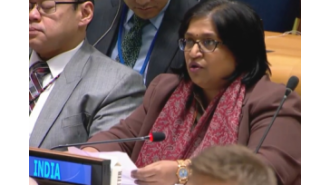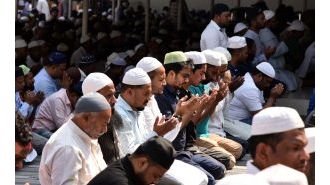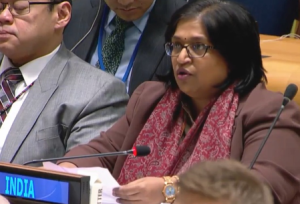Investigation and examination are crucial Scrutiny is essential for thorough investigation and examination.
Many supporters of the Prime Minister feel that his third term lacks direction and purpose. Modi had promised significant decisions that would have an impact for the next millennium, but it remains to be seen.

The Prime Minister has a lot of supporters, and they can't help but feel like there is a lack of direction and purpose during this third term. In the new Parliament building back in February, Narendra Modi declared that the BJP's third term would involve making crucial decisions that would have a lasting impact for the next 1000 years. During an interview with a news channel during the campaign, he confidently stated that the results would be evident in the first 125 days after June 4th. He also mentioned that he had already finalized the agenda for the first 100 days and that he would use the remaining 25 days to focus on the youth. However, none of this has come to fruition. As of Monday, October 7th, it has been 125 days since the results, and there is a general feeling of nothing happening. This is mainly due to the fact that, with a minority, the BJP can no longer push through legislation in Parliament like it did between 2014 and 2024.
This can be seen with the Waqf Bill, which was sent to a Joint Parliamentary Committee for review. For the past decade, with a weak opposition, the government never allowed for bills to be scrutinized by sending them to a committee. This trend of passing laws without fully understanding their contents through a rigorous process has only increased during the Modi era. In the 14th Lok Sabha, 60% of the bills were referred to committees for scrutiny, and that number rose to 71% in the next Lok Sabha. However, during the first Modi government, that number dropped to a mere 25%. This goes against the parliamentary convention of referring bills to department-related parliamentary standing committees for examination after the first victory in 2014. The number of laws that were scrutinized before being passed decreased significantly after Modi's second victory. The opposition noticed this and 17 MPs from various parties wrote to the government expressing their concern over the rushed passing of bills without proper scrutiny. They also highlighted how the practice of public consultation, where groups and individuals are invited to share their views on potential legislation, had also stopped. According to them, this process is essential in improving the quality and content of legislation.
Despite these concerns, Modi continued with his approach, and in 2020, not a single bill was sent to a committee for scrutiny. Instead, the government passed 11 ordinances between March and August, including one that amended the Income Tax Act to give 100% tax exemption to donations made to the PM CARES fund. Ordinances are meant to be passed only when Parliament is not in session, and the government must take immediate action. Additionally, no ordinance is allowed to be in force for more than six months without parliamentary approval. This means that these laws were voted into effect without any proper scrutiny.
Even when there were committees in place, the government prevented them from functioning. Government MPs were using technicalities to block scrutiny on issues that could potentially raise uncomfortable questions for the government. For example, the Committee on Home Affairs met to discuss the decision on Kashmir after it had already been bifurcated. During the pandemic, standing committees were not allowed to meet, not even virtually, under the pretext of maintaining confidentiality.
While the opposition MPs raised concerns, the BJP continued to pass controversial laws on triple talaq, RTI, and the amendment to UAPA, which allows the government to designate individuals as "terrorists." Similarly, the farm bills, the bill that revoked Kashmir's special status, and the one amending citizenship were not referred to any parliamentary committees for non-partisan deliberation. These rushed decisions would eventually lead to problems in the future. As Chakshu Roy from PRS Legislative Research pointed out, the lack of scrutiny in legislation is a significant problem. When the government and the opposition agree, even the most far-reaching laws are passed without much debate. However, when there is disagreement, as seen with the agriculture bills, the quick passing of laws can result in chaos and disorder in Parliament. This highlights the urgency of the government in enacting legislation. Even bills that amend the Constitution can be passed in a matter of days when the government is in a hurry.
Moreover, the lack of legislative scrutiny increases the chances of the country being burdened with half-baked laws. This is why consultation is not only important but necessary. Modi has reversed a tradition of consultation that even the British followed when they were India's masters. For instance, when a law on forcible indigo cultivation was being drafted in 1917, and the Champaran Agrarian Bill was introduced in the Bihar-Orissa Legislative Assembly, many members demanded that it be referred to a select committee for scrutiny. The British government agreed, and Gandhi was asked to examine the bill.
With a strong opposition in place now, the era of BJP's absolute dominance has come to an end. To govern effectively and pass successful legislation, Modi must reach out to the opposition. He must involve them in decision-making, just like previous Prime Ministers have done. However, there are no signs of him accepting this reality, and as long as that remains the case, the feeling of drift that his fans are lamenting over will continue. The ball is in his court, and it's up to him to make the necessary changes.










